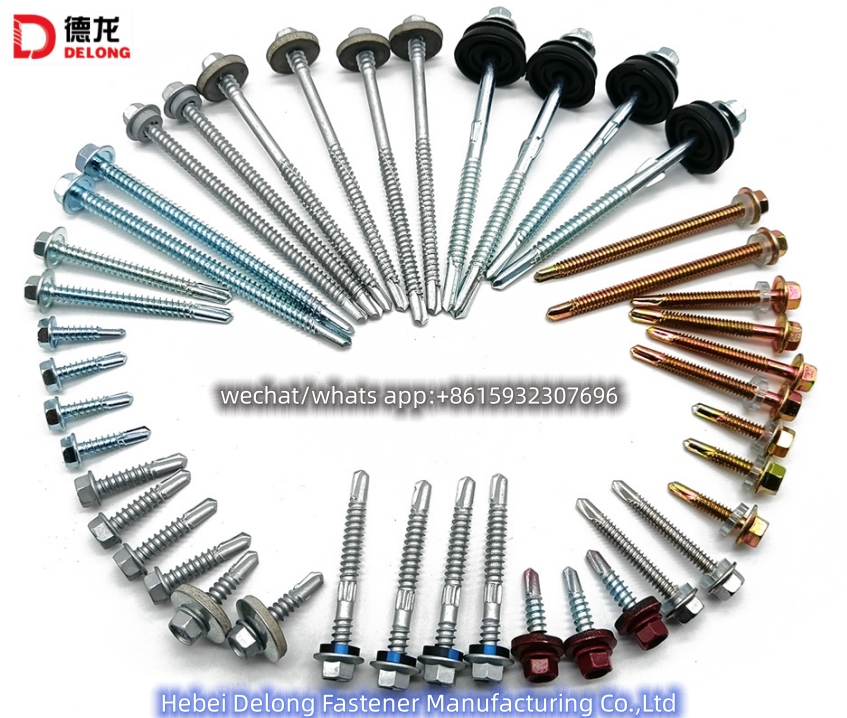Optimal Pilot Hole Size for 12 Self-Tapping Screws in Various Materials
Best Pilot Hole for 12 Self-Tapping Screw
When it comes to woodworking and construction, choosing the right pilot hole for screws is crucial for ensuring strong and reliable connections. This is particularly true for self-tapping screws, like the 12 self-tapping screw, which are designed to create their own threads in a material. Understanding the best pilot hole size for these screws can significantly enhance the strength of the joint and prevent potential issues such as wood splitting or screw breakage.
Understanding Self-Tapping Screws
Self-tapping screws are specially designed to form their own thread as they are driven into materials, be it wood, metal, or plastic. This feature allows them to achieve a secure connection without the need for pre-tapping a thread, making them a favorite among contractors and DIY enthusiasts alike. The 12 screw size is commonly used in various applications, including furniture assembly, cabinetry, and metal-to-wood applications, owing to its optimal balance of strength and size.
Importance of Pilot Holes
Drilling a pilot hole when using self-tapping screws can greatly reduce the risk of damaging the material being fastened. For instance, hardwoods are particularly prone to splitting when a large screw is driven without a pre-drilled pilot hole. Furthermore, the right pilot hole can help achieve better alignment and reduce the force required to drive the screw, making the work easier and more efficient.
Determining the Best Pilot Hole Size
Choosing the best pilot hole size for a 12 self-tapping screw depends on the material you are working with. The general rule of thumb for pilot hole diameter is approximately 70-80% of the screw's major diameter. A 12 screw typically has a major diameter of about 0.216 inches. Therefore, a recommended pilot hole size would range from 0.155 to 0.173 inches.
best pilot hole for #12 self tapping screw

For softwoods, a pilot hole of around 0.170 inches is typically suitable. This slightly larger size allows for easier penetration and reduces the likelihood of the wood splitting. On the other hand, hardwoods benefit from a tighter fit, so a pilot hole of about 0.155 inches is often more appropriate.
Calculating the Depth of the Pilot Hole
In addition to diameter, the depth of the pilot hole is equally important. The depth should generally match the length of the screw that will be inserted into the material. For a 12 self-tapping screw, which often comes in lengths ranging from 1 to 3 inches, the pilot hole should also be drilled to these respective depths. Ensuring that the pilot hole is deep enough allows the screw to fully engage with the material, ensuring maximum holding power.
Additional Considerations
It’s important to consider the type of self-tapping screw you are using as well. Some screws have specialized tips that require a different approach to pilot holes. For example, screws with sharp points may not need a pilot hole in thin materials, whereas others may require a specific pre-drill diameter for optimal performance.
Conclusion
Choosing the best pilot hole for a 12 self-tapping screw is essential for achieving a strong, reliable connection in various materials. By adhering to the general guidelines of drilling pilot holes that encompass about 70-80% of the screw’s diameter, you can prevent material damage and ensure the effectiveness of your fastened joint. With the right preparation and understanding of your materials, using self-tapping screws can be a straightforward and effective fastening solution for any project you undertake. Always remember that attention to detail at this stage can save a lot of time and effort in the long run, leading to more satisfying and durable results in your work.
-
Top Choices for Plasterboard FixingNewsDec.26,2024
-
The Versatility of Specialty WashersNewsDec.26,2024
-
Secure Your ProjectsNewsDec.26,2024
-
Essential Screws for Chipboard Flooring ProjectsNewsDec.26,2024
-
Choosing the Right Drywall ScrewsNewsDec.26,2024
-
Black Phosphate Screws for Superior PerformanceNewsDec.26,2024
-
The Versatile Choice of Nylon Flat Washers for Your NeedsNewsDec.18,2024










